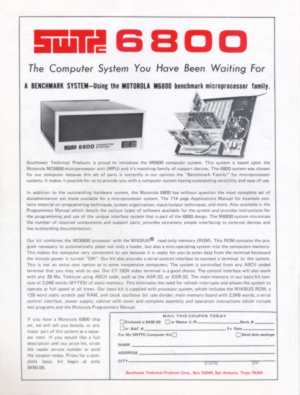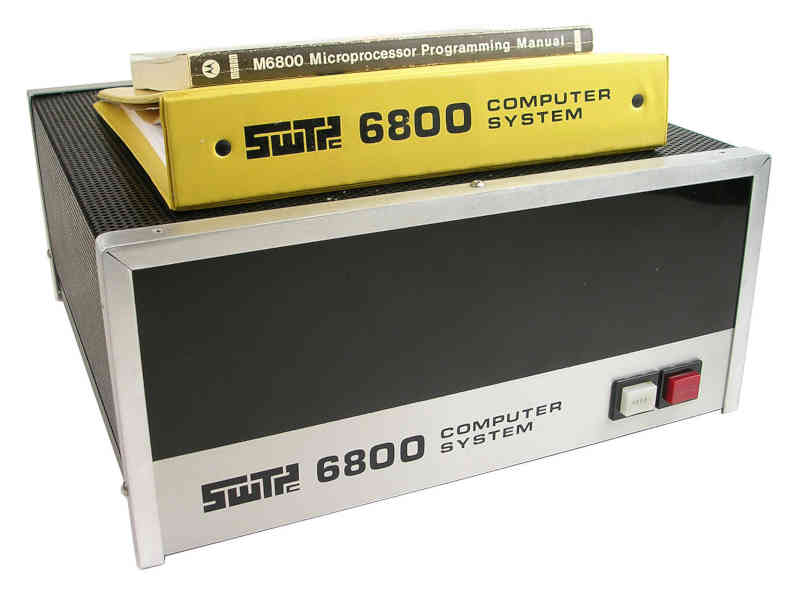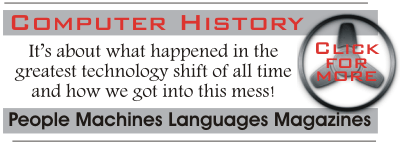| The SWTP Effect -The Microcomputer Revolution In The UK |
| Written by Historian | |||||||
Page 3 of 3
SoftwareWhat software could you hope to run on this sort of machine? The answer was a BASIC interpreter written to fit into only 3Kbytes so that a 4Kmachine would just have room to run a program. This was loaded from cassette and could save programs back to cassette. There was also an assembler/editor and some very simple games such as Star Trek - a character based game played on a grid much like battleships. While the rest of the world was working with Microsoft Basic the UK had already struck a blow for freedom by mainly using SWTP Basic!
The system grew from a simple cassette based machine to one that had disk drives - and disk drives need an operating system. Again the UK opted for something other than the standard. SWTP standardized on an operating system called Flex produced by a little known company called TSC. Flex used an elegant design and was easy to use. The first version used a linked list filing system that only used a basic directory and made sequential file reads fast. Its only problem was that the disk filing system didn’t handle direct access files at all - but in those days you were pleased to get a computer, let alone one that would let you build a database system! One morning the trade magazines suddenly announced that an operating system called CP/M was the standard. What they really meant was that it was the standard in the US. In the UK when a machine had disk drives it probably used Flex but suddenly CP/M became important here too and guess what - CP/M didn’t run on 6800 systems. The SWTP product was now well and truly isolated. The final round of machines incorporated memory bank switching and a new operating system called UniFlex, a completely rewritten operating system modeled on Unix. The machine was beginning to look like the minicomputers of the time. For example its hard disk was a 10” model built into a case the size of a blanket box and too heavy to be picked up by one person.
Picture Credit: Michael Holley Related ArticlesThe UK 1970s Big Board Computers To be informed about new articles on I Programmer, sign up for our weekly newsletter, subscribe to the RSS feed and follow us on Twitter, Facebook or Linkedin.
Comments
or email your comment to: comments@i-programmer.info
|
|||||||
| Last Updated ( Thursday, 16 August 2018 ) |



